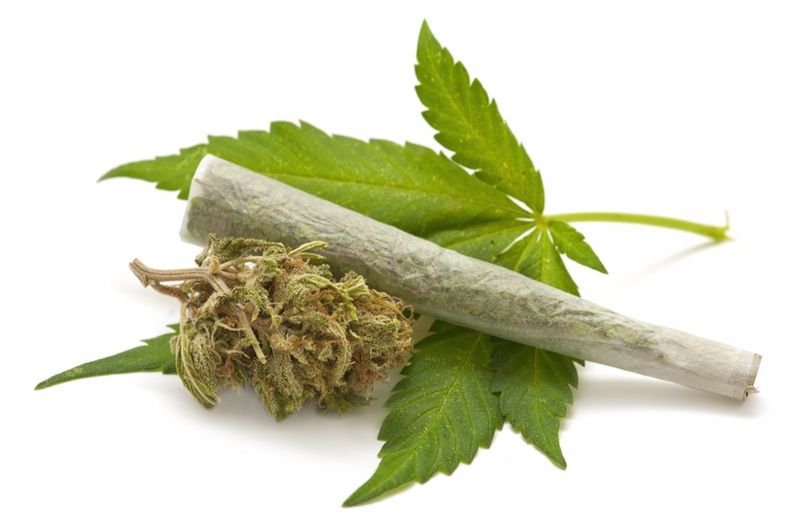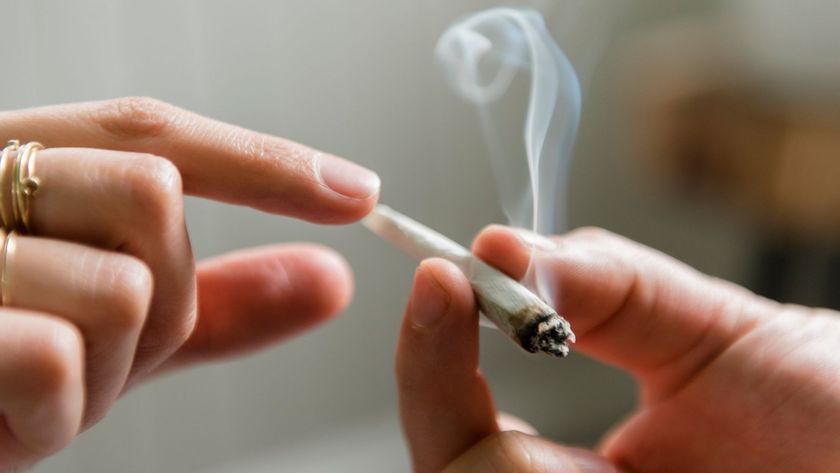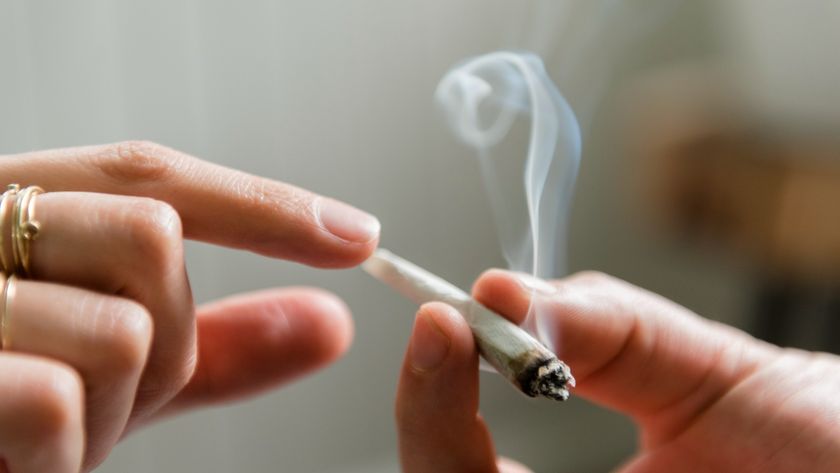
The Truth About Marijuana: Health Risks Trivialized (Op-Ed)

Dr. Suzanne Steinbaum is an attending cardiologist and the director of Women's Heart Health of Lenox Hill Hospital in New York City and has been featured on "The Early Show," "The Doctors," "Good Morning America," "20/20" and other TV programs. She recently released her book, "Dr. Suzanne Steinbaum's Heart Book: Every Woman's Guide to a Heart Healthy Life" (Avery, 2014) and is the host of "Focus on Health," a weekly magazine news show spotlighting health topics, seen on WLNY-TV. Steinbaum contributed this article to Live Science's Expert Voices: Op-Ed & Insights.
In this new era of marijuana legalization, the information delivered to the public often extols the benefits of cannabis, with its seemingly magical properties. Much of the literature implies, or blatantly states, that this substance has been withheld, wrongly, from the public and that people have been missing out on its many amazing benefits. But the public isn't getting the full story, and as states continue to consider marijuana legalization, lawmakers and the public should have all the facts.
First, marijuana can be damaging to your heart. In fact, a study released today (April 23) by the Journal of the American Heart Association revealed a correlation between cardiovascular disease and cannabis use in regular marijuana users.
Cannabis use was identified as a trigger for ischemic stroke, third only to tobacco smoking and cocaine use, the study found.
In the European risk analysis, the Systematic Coronary Risk Evaluation (SCORE) system — which measures risk factors for heart attack — included not only obesity, sedentary lifestyle, age, elevated cholesterol and smoking, but also cannabis smoking. [Marijuana: 5 Surprising Facts About Pot]
This finding is troubling, because information like this has not been part of the discussion on marijuana legalization thus far, and when health issues come up, they are often trivialized by the pro-marijuana lobby. People often see marijuana as a "healthy drug" or a "natural drug," and some people even claim it can cure disease, not to mention treat pain, decrease nausea and increase appetite. Of course, marijuana does benefit some people who have these issues. But we need to step back, take a breath and consider the big picture.
Another important concern is that with the legalization of any drug comes the potential for the abuse of it — and I'm not talking about abuse by the people who have the prescription for it or for whom it was intended (although we all know this can happen, too). This has already happened with narcotics such as oxycodone: According to the U.S. Department of Health and Human Services, approximately 100,000 people per year are hospitalized in the United States due to misuse of oxycodone. Of course, this drug is beneficial for those in severe pain, and its use has improved the quality of life for these people. But that doesn't erase the fact that abuse rates and death rates due to this drug have skyrocketed. But for those who use the drug recreationally, the risks far outweigh the benefits of a temporary high.
Sign up for the Live Science daily newsletter now
Get the world’s most fascinating discoveries delivered straight to your inbox.

Does this potential for abuse exist with marijuana? Maybe, maybe not. But it's important that we ask the right questions and present the facts about marijuana.
The aforementioned study was conducted by the French CEIP Addictovigilance network, which has studied the health effects of marijuana. This group of 13 centers assesses and gathers information regarding addiction or abuse to psychoactive substances, and monitors the abuse and dependence of psychoactive drugs and their impact on public health, to prevent harmful outcomes and control drug distribution. Although 95 percent of the complications due to drug use are not captured in this data, the link to cardiovascular disease was clear: The death rate due to cardiovascular disease from marijuana use was as high as 25.6 percent.
The study participants' median age was just 34.5 years, and those who were regular marijuana users and had a family history of heart disease or other risk factors had an increase in the risk of heart disease, even when their other risk factors were taken into account. Of the 1,979 cases studied, 2 percent had cardiovascular complications, with 20 of those being heart attacks. There were also 3 strokes and 10 cases of peripheral arterial disease. Considering that in France, 1.2 million people use marijuana regularly, this small window offers a glimpse into the potential future.
As a preventative cardiologist, my goal is to always understand how to prevent cardiovascular disease and to help people assess lifestyle issues that contribute to its development. I look for markers that indicate risk, and modalities that could potentially reverse or prevent an event manifesting inside the arteries of my patients. The last thing we need is another risk factor to add to the list. Legalization might irreversibly affect the health of those who will now have easier access to something they see as harmless, when it is not. If we are moving toward what is happening in France, we need to consider that drug abuse is most common in the younger population, with 25 percent of users younger age 28.3 and younger. In the United States, kids are already struggling with obesity and diabetes. Marijuana would only add to those health concerns. The next generation seems to be setting themselves up to be the generation with the most heart disease yet.
The French study was small and imperfect. Many might disregard it for these reasons. However, it is a warning sign. Yes, let's consider that cannabis can help those who are sick, but let's also consider what will happen if kids can get it even more easily than they can right now. (Yes, it's already out there.) Perhaps we can look back on the history of drugs in America and what has happened when other substances were legalized. Let's get some perspective, and think not just about medical use but also about the inevitable abuse and effect on the country's health. The legalization of marijuana may sound alluring to many, but it might just be something that hits us in the heart.
Follow all of the Expert Voices issues and debates — and become part of the discussion — on Facebook, Twitter and Google +. The views expressed are those of the author and do not necessarily reflect the views of the publisher. This version of the article was originally published on Live Science.













